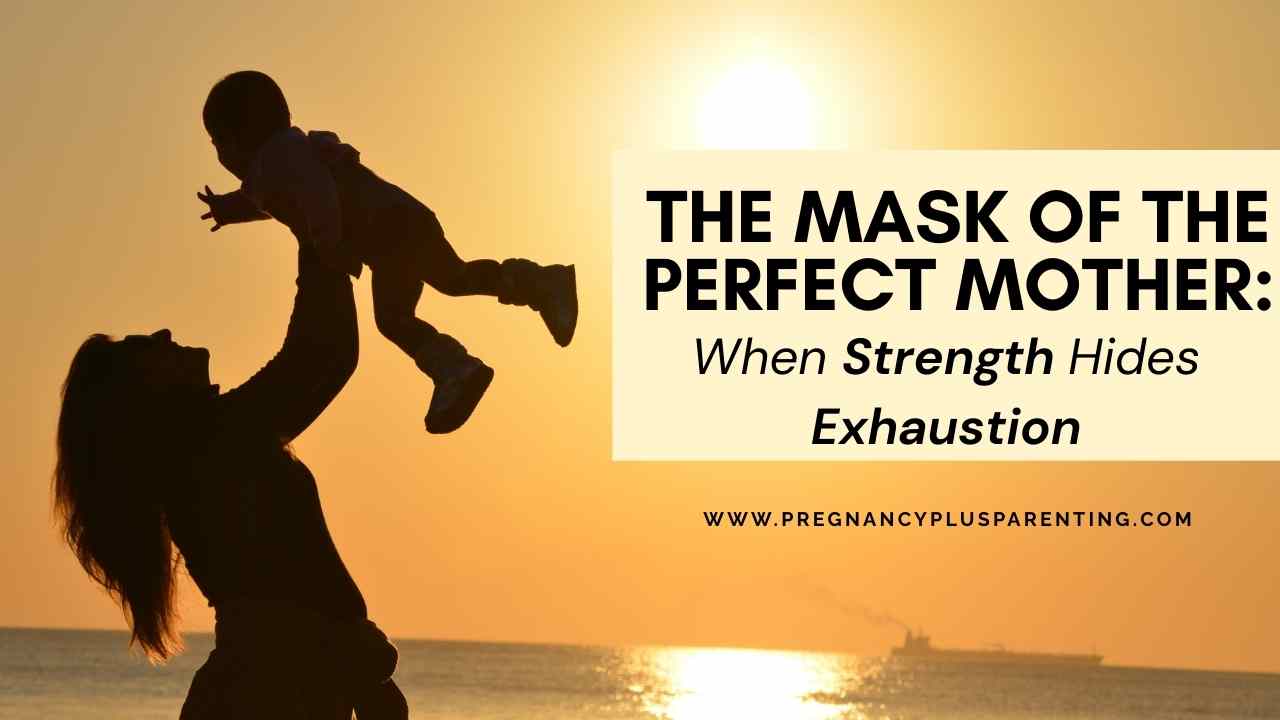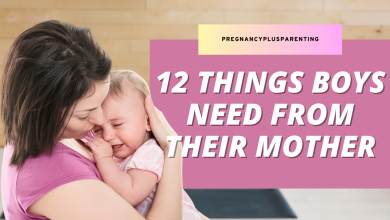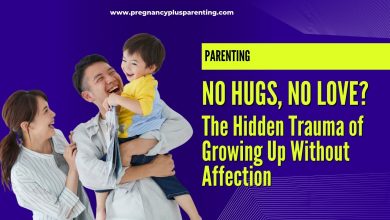The Mask of the Perfect Mother: When Strength Hides Exhaustion
The silent exhaustion behind the smile
There are mothers who give their all. Every day. They function, plan, organise, comfort, listen, persevere – even when they’ve long since lost their inner strength. They are strong, tireless, seemingly unshakeable.
But what happens when this strength becomes a mask? When a mother has learned that she can’t show weakness?
The pressure to be a perfect mother isn’t a myth—it’s real. And it weighs heavily. In a world full of expectations, judgments, and idealized images, motherhood often becomes a stage where there’s no room for doubt, overwhelm, or tears.
But therein lies a hidden danger: when mothers believe they have to be strong no matter what happens, they often lose touch with themselves.
The image of the perfect mother – and where it comes from
The idea of the “perfect mother” often begins long before the birth of the first child. Even during pregnancy, it is suggested that mothers intuitively know what is right.
That they should always be patient, loving, and balanced. That they are there for others—not for themselves.
Social media, family images in advertisements, and even advice books often convey an idealized version of motherhood. Tired? Annoyed? Desperate?
That doesn’t happen. Instead, we see smiling mothers with freshly combed children and clean kitchens.
These images are deeply ingrained. And they create a dangerous narrative: A good mother doesn’t doubt. A good mother can do anything. A good mother always puts herself last.
When weakness is considered failure
Many women grow up with the message that weakness is dangerous. Perhaps because their own mothers were never allowed to appear overwhelmed.
Perhaps because they themselves were made responsible for the feelings of others. Perhaps because they learned: Only when I am strong will I be loved.
These patterns often continue to have an unconscious effect. Then, when the first child arrives, they suddenly become loud. The young mother wants to do everything right – and doesn’t realize that she’s losing herself.
Because she doesn’t allow herself to be tired. She doesn’t allow herself to say, “I don’t know what to do right now.” She has learned that she is only valuable when she functions.

The silent exhaustion behind the smile
You often don’t recognize her at first glance. The mother who always seems friendly.
The one who attends every parent-teacher meeting, makes the perfect lunch, and organizes the craft supplies for the whole class. She doesn’t complain. She smiles. And inside, she’s empty.
This exhaustion often goes unnoticed—even by the woman herself. It isn’t loud. It doesn’t scream. It doesn’t cry. It bears the burden silently. And it slowly breaks down.
Because constant self-denial comes at a price. Physical symptoms. Inner emptiness. Feelings of loneliness, worthlessness, and being overwhelmed. But outwardly, the facade remains: the perfect mother.
Why it is so difficult to accept help
For many mothers, showing weakness means giving up control and making themselves vulnerable.
And often, it also takes courage to admit to yourself that something is no longer working. That takes courage—especially in a society that still prefers to judge rather than understand.
A mother who says, “I can’t do this anymore,” often fears rejection. She worries: What if I’ll be considered a bad mother? What if my children suffer? What if I’m not enough?
And so we remain silent. Swallow it. Bear it. But what we repress doesn’t disappear. It seeks other outlets – in the form of fear, irritability, withdrawal, or inner collapse.
The fear of losing control
Many mothers cling to the image of the perfect mother because, deep down, they are afraid: of chaos, of failure, of being deprived of love. Control supposedly provides security.
When everything is under control – the household, the children, the schedule – then at least outwardly the world is in order.
But control isn’t a sign of strength—it’s often an expression of inner insecurity. The facade of perfection is a shield against deeper wounds: the feeling of not being enough. The fear of not being loved. The shame of needing help.
What children really need
Many mothers believe they have to be perfect to be a good role model for their children. But the opposite is true.
Children don’t need flawless mothers. They need real people. Mothers who show that adults have feelings too. That it’s okay to accept help. That you can be strong even with tears.
When a mother expresses her feelings—appropriately, honestly, authentically—the child learns: Feelings are okay. I don’t have to hide anything. Emotional security is created. And a relationship as equals.
Perfection creates distance. Vulnerability creates closeness.
Shame and guilt – the constant companions
When mothers do admit to themselves that they’re exhausted, feelings of guilt often immediately follow. “I have healthy children.”
I should be grateful. Others have it worse. Why am I so weak?
These thoughts are not a sign of failure – but rather proof of how deeply rooted the ideal of the perfect mother is.
A woman who feels guilty about being tired is not suffering from herself—she is suffering from a societal image that does not allow for humanity.
The way back to yourself
The first step out of the inner prison is recognizing: I’m allowed to be tired. I’m allowed to make mistakes. I’m not allowed to accomplish everything.
It takes time to truly believe these statements. But every small moment of honesty is an act of self-care. A conversation with a friend. A frank word with your partner. A day off without justifying yourself.
Seeking help—from a therapist, a midwife, a support group—is not a sign of failure. It’s a sign of strength.
The true role model: a human mother
A mother who allows herself to be herself – with all her strengths and weaknesses – gives her children the greatest gift: authenticity .
She shows them that no one has to be perfect. That true closeness develops where masks fall away.
These children grow up feeling like they don’t have to pretend. That they are valuable—even on bad days.
And they learn that caring doesn’t mean giving up on themselves, but that love also means taking good care of themselves.
Conclusion: The strongest mother is the one who allows herself to be human
Motherhood is not a stage for perfection. It is an intense, often overwhelming, and deeply human process.
A strong mother isn’t the one who never falls—but the one who has the courage to get up. Who has the courage to say, “I need a break.” Who treats herself with the same love she gives her children.
If you’re a mother who always wanted to be strong: You can let go. You can accept help. You can be yourself.
Because you’re not strong because you don’t show weakness.
You’re strong because you dare to admit your weakness.






